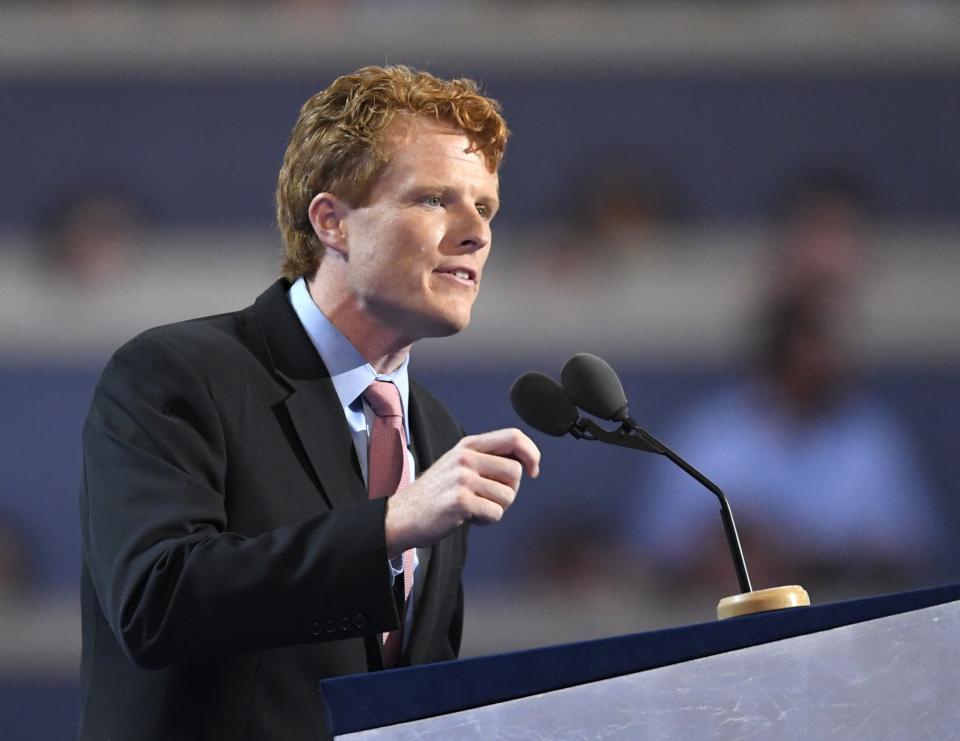It wouldn’t be a Democratic convention without a Kennedy
PHILADELPHIA — There’s nothing that quickens the pulses of the Democratic faithful like a convention address by a Kennedy.
The lore goes back to John F. Kennedy’s presidential acceptance speech in Los Angeles in 1960. In a preview of the sacrifices he would ask of the American people in his first inaugural address, Kennedy said, “The New Frontier of which I speak is not a set of promises — it is a set of challenges. It sums up not what I intend to offer the American people, but what I intend to ask of them.” Four years later, Robert F. Kennedy eulogized his fallen brother at the party convention in Atlantic City, where he received a 22-minute ovation before he could speak. In what became known as the “Stars Speech,” RFK quoted a line from Shakespeare’s “Romeo and Juliet” that he said made him think about his brother. “When he shall die, cut him into little stars, and he shall make the face of heaven so fond, that all the world will fall in love with night and pay no worship to the garish sun,” Kennedy said.
And in 1980, Edward Kennedy delivered a concession speech that made liberals who were disenchanted with Democratic President Jimmy Carter swoon. “For all those whose cares have been our concern, the work goes on, the cause endures, the hope still lives, and the dream shall never die,” the liberal lion intoned. (Twenty-eight years later, stricken with cancer, Kennedy reprised a version of those stirring lines in Denver at Barack Obama’s first nominating convention.)
These are hard Kennedy acts to follow. But Monday evening Joseph P. Kennedy III, the grandson of RFK, grandnephew of Jack Kennedy and son of the former Rep. Joseph P. Kennedy II, took the stage at the Wells Fargo Center in Philadelphia to see if he could work just a little of the old family magic. Kennedy, a two-term congressman from roughly the same district once held by JFK, introduced the opening night’s keynote speaker, Massachusetts Sen. Elizabeth Warren, perhaps the party’s feistiest progressive.

As the only member of the famous political clan currently holding political office, Kennedy seemed to understand that this was not his moment. But with his tousled red hair and chiseled features, he certainly looked the part. He spoke for about three minutes, starting with a self-deprecating story about being unprepared on his first day in Warren’s class at Harvard Law School. He described Warren as a lawyer with a heart and sense of justice. She understood, Kennedy said, that “our laws have human consequences and that fact fueled a law professor to take on this country’s most entrenched interests.”
“In a sea of power and privilege,” Kennedy added, “Sen. Warren is an anchor for the voiceless and victimized. She asks more from all of us because she believes deeply in each of us. That faith in our country, in the American people, is the very foundation of our Democratic Party.”
A teetotaler who joined the Peace Corps after college and later became a prosecutor, Kennedy has pushed for funding of science and technology, economic opportunities for the poor and civil liberties. Just 35 years old, he would seem to have a promising future in Democratic politics — even if (to paraphrase a onetime opponent of his great-uncle Ted) his name were Joseph Patrick.
_____
Related slideshows:
On the ground at the DNC — a photo report >>>
How newspaper’s covered the DNC’s first big day >>>
Demonstrators protest outside the DNC >>>


